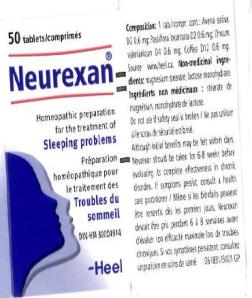It’s been a while since I talked about one of my first pet topics, the burqa bans going on in various places in the world. The point I laboured to make in those early articles was that there may be some specific circumstances under which it is better for society to brook some contravention of its rules in the name of being tolerant of practices imported from other cultures. This is particularly true of Canada, with its wide variety of cultural groups. If we want Canada to remain a place where groups from all over the world can feel at home, then we have to occasionally put aside our discomfiture toward “the other”.
But other times, “the other” is stupid and there needn’t be any accommodation:
Plans for a hospice on the University of British Columbia campus have been put on hold after some neighbourhood residents said the proposed facility offended their cultural sensitivities around death and dying.
“It is all about cultural sensitivity,” said Ms. Fan, a Chinese-born immigrant who lives in a high-rise near the proposed hospice site. “We came here as new immigrants with our own belief system. And in our beliefs, it is impossible for us to have dying people in our backyard.”
The main gist of this argument is that many Chinese-born immigrants share a cultural taboo about death, feeling that it brings bad luck and will spoil marriages and businesses and all sorts of other pursuits. Building a hospice in a neighbourhood with many immigrants from this area lacks cultural sensitivity for such beliefs.
My response: fuck your superstition.
This proposed building is on the campus of the University of British Columbia. UBC has a right to build whatever legal structure they like on their grounds. UBC also has a hospital on its grounds. News flash: people die in hospitals every day. People also die in car accidents, stabbings, from heart attacks… the list goes on ad infinitum. Death is a part of life – in fact, death is the thing that makes life precious. If your beliefs are in conflict with biological fact, it is not the responsibility of the rest of the world to move in line with your beliefs; it’s your responsibility to figure out a way to deal with it.
I feel passionately about this issue, as someone who works in cancer research. The majority of people who pursue hospice care suffer from terminal cancer. At the end of the course of this disease, patients are often in near-constant pain that gets limited (or no) relief through the use of drugs and radiation. The idea behind hospice care is to allow the dying person to maintain a bit of dignity and comfort. It is the sign of a compassionate and caring people when the sick and dying are cared for. Adequate hospice care means that people are not languishing in long-term care facilities, at home, or worst of all in a hospital, unable to access sufficient relief from their symptoms as their bodies shut down.
A very good friend of mine worked in a hospice on a co-op term. She would be able to speak much more eloquently and passionately than I can about what a great job hospice care does of improving the quality of life of people who are lucky enough to have the opportunity to die there. I say ‘lucky’ in full awareness of the fact that it’s not exactly ‘lucky’ to get cancer, but since there are far fewer spaces than there is demand for those spaces, getting in is indeed a stroke of luck.
I hope nobody would accuse me of being a person who is not sensitive to the fact that not everyone sees the world the same way. I am aware that different groups have different ideas about life, and that some issues hit people more viscerally than others. However, in this case we’re talking about conflating superstition with the real suffering of real people. The proximity of death has zero effect on whether or not your business is lucky – the flourishing funeral home business is perhaps a counter-example. People who work in hospitals around dying people can maintain happy relationships, and in some cases the death of a close family member can bring people closer together. To suggest that dying people should put relief of their suffering on hold because you’re afraid of the dark is the height of childish arrogance.
We should make our decisions based on what is real, not what spares the delicate feelings of stupid people.
Like this article? Follow me on Twitter!


